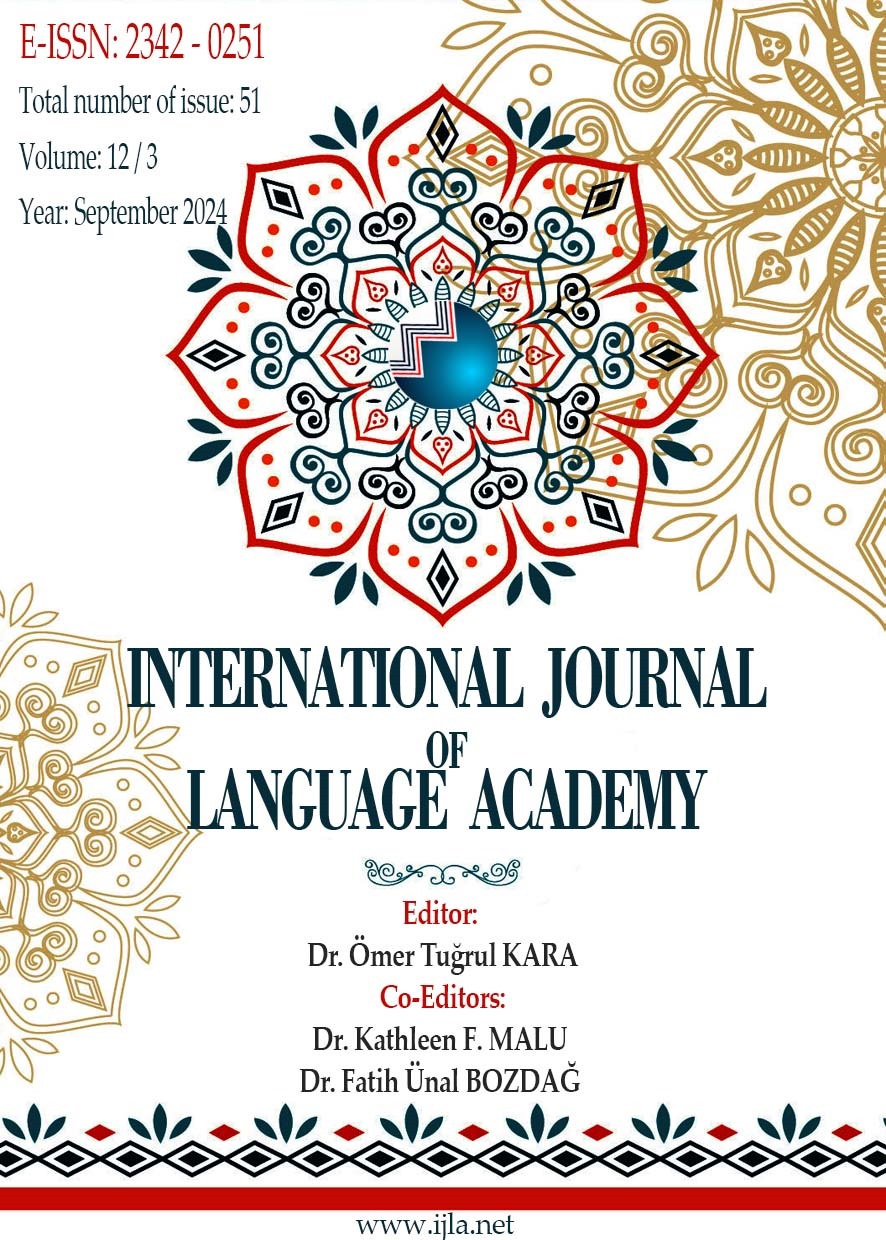Author :
Abstract
Kavramsal eğretileme Lakoff ve Johnson’ın (1980) ifade ettiği biçimde insanın kavramsal dizgesinin bir ürünüdür. Eğretilemeler aynı zamanda bilişsel yapımızın bir parçasıdır ve bu açıdan zihinde derinlerde gömülü olan kavramsal ilişkileri ortaya çıkarmaktadır. Bu noktada eğretilemeler zihnin dünyayı kurgulama, temsil etme ve akıl yürütme yeteneği ile doğrudan ilişkisi olan bilişsel işlemlerle yakından ilgilidir. Bu açıdan Ruiz de Mendoza Ibáñez ve Masegosa, (2014) bilişsel işlemleri biçimsel ve içerik işlemleri olmak üzere iki ulamla ele almaktadır. Bu işlemler hem eğretileme hem de düzdeğişmecelerin oluşmasında etkilidir. Bu çalışmanın amacı Türkçede düğünle ilgili eğretilemelerde biçimsel ve içerik işlemlerinden sıklıkla hangilerinin yer aldığını araştırmaktır. Bu açıdan çalışmada düğün sözcüğünü Türkçe Ulusal Derlemi üzerinden sorgulatarak ulaştığımız verileri Steen ve diğ. (2010) tarafından geliştirilen Eğretileme Belirleme Yordamı (Metaphor Identification Procedure) ile değerlendirdik. Çalışmadan elde ettiğimiz verilerde biçimsel işlemlerden sıklıkla ipucu, seçim ve bütünleştirme işlemleri yer alırken; içerik işlemlerinden karşılaştırma ve değiştirgenleştirme işlemlerinin yer aldığını tespit ettik. Ayrıca bu bilişsel işlemlerin eğretilemelerin oluşması ve tespit edilmesinde bir işleve sahip olabileceği sonucuna ulaştık. Sonuç olarak hem içerik hem de biçimsel işlemler kavramsal eğretilemeleri oluşturmak için önemli bir ipucu sağlamaktadır. Bununla birlikte ele aldığımız düğünle ilgili yapılarda kültüre yönelik yansımaları da görmek mümkündür. Bu durum da şunu göstermektedir: eğretilemeler hem bilişsel yapımızın hem de kültürel yapımızın kavramsallaştırılmasında rol oynamaktadır.
Keywords
Abstract
Conceptual metaphor, as Lakoff and Johnson (1980) put it, is a product of the human conceptual system. At the same time, metaphors are also a part of our cognitive structure and in this respect, they reveal conceptual relationships that are deeply embedded in the mind. At this point, metaphors are closely related to cognitive processes that are directly related to the mind's ability to construct, represent, and reason about the world. In this respect, Ruiz de Mendoza Ibáñez and Masegosa (2014) discuss cognitive operations in two categories: formal and content operations. These operations are effective in the formation of both metaphors and similes. This study aims to investigate which of the formal and content operations are frequently involved in wedding-related metaphors in Turkish. In this respect, we used the Metaphor Identification Procedure developed by Steen et al. (2010) to evaluate the data we obtained by querying the word düğün through the Turkish National Corpus. In the data we obtained from the study, we found that clue, selection, and integration operations were frequently involved in formal operations, while comparison and modification operations were involved in content operations. We also concluded that these cognitive operations may have a function in the formation and identification of metaphors. However, it is also possible to see cultural reflections in the structures related to weddings. This situation shows that metaphors play a role in the conceptualization of both our cognitive structure and our cultural structure.





